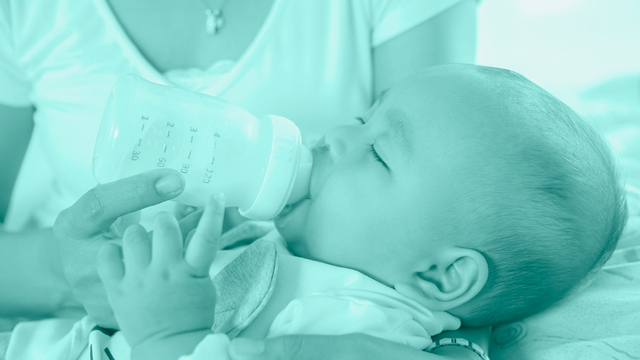How to meet baby’s health needs – what parents need to know about vitamin D and iron.
There is so much to consider as a new parent. For many of us, thinking about vitamin D for our newborns may not even make the list, but providing vitamin D is a quick, easy, and important way to improve our children’s nutrition.
Babies need vitamin D every day – either from their diets or as a supplement – beginning within the first few days after birth. Vitamin D is necessary to help your baby absorb calcium and regulate phosphorus so she can make and maintain strong healthy bones. It may also play a role in other areas of health, including muscle development and immune function. Prolonged low levels of vitamin D can cause nutritional rickets, a bone-softening condition that can lead to bowing of the legs. Children who are breastfed and do not receive vitamin D supplementation are at the highest risk of nutritional rickets.
Essential Vitamins for Babies
Vitamin D can be made naturally by our skin through sun exposure, but your baby should avoid direct sunlight as much as possible due to the risk of skin damage or skin cancer later in life. Once your baby is old enough to play and spend time outdoors, the sunscreen he’ll need to protect his skin from ultraviolet rays will also block his skin’s ability to make vitamin D. Unfortunately, vitamin D levels in breastmilk are usually quite low, and it is only found naturally in very few foods like salmon, canned tuna, and eggs. Fortunately, vitamin D is often added to other food sources like milk, yogurt, orange juice, and breakfast cereal. Since these foods should not be given to newborns and young babies, your baby will need vitamin D from infant formula and/or vitamin supplements.
Babies need 400 IU (international units) of vitamin D every day. If your baby is exclusively breastfed or is fed a combination of breastmilk and formula, she should be given a vitamin D supplement daily. While infant formulas are fortified with vitamin D, adequate amounts are not achieved until babies drink thirty-two ounces of formula daily. In other words, nearly every newborn will need a vitamin D supplement every day. Children older than twelve months and most adults, including breastfeeding mothers, need 600 IU of vitamin D daily from foods or supplements.
Vitamin D supplements for babies can be found over the counter at most pharmacies. There are several different types available – some require one milliliter of liquid daily, and some require just one drop daily, so be sure to read the instructions on your supplement carefully. Breastfeeding mothers may prefer the more concentrated supplement, since a single drop can be placed directly onto the breast right before nursing – your baby will get the vitamin as soon as she latches and begins to suck. You can also place this concentrated drop onto your clean fingertip; then allow your baby to suck on your finger for a few seconds. Any of these liquid formulations can also be added to a bottle of expressed breastmilk or formula, or can be put directly into your baby’s mouth.
Vitamin D and Iron for Babies
In addition to vitamin D, another important supplement commonly recommended for babies is iron. Iron is needed to maintain healthy numbers of red blood cells and prevent a condition called anemia. Symptoms of anemia in children can include looking pale, or feeling tired, weak, and cranky. Typically, full-term healthy babies have built up enough iron stores during a mother’s third trimester to last for the first four months of life. After four months old, babies without iron supplements or iron-fortified foods can be at risk of developing anemia. Some baby foods and many formulas have iron added to them to help prevent anemia. Over-the-counter iron supplements for babies are also available.
Good nutrition that fosters healthy growth and development starts early. Your pediatrician can help you decide if your baby is getting enough vitamin D and other nutrients in her diet on a daily basis. Like all medications, vitamin D and iron supplements should be stored safely out of the reach of children and pets.




